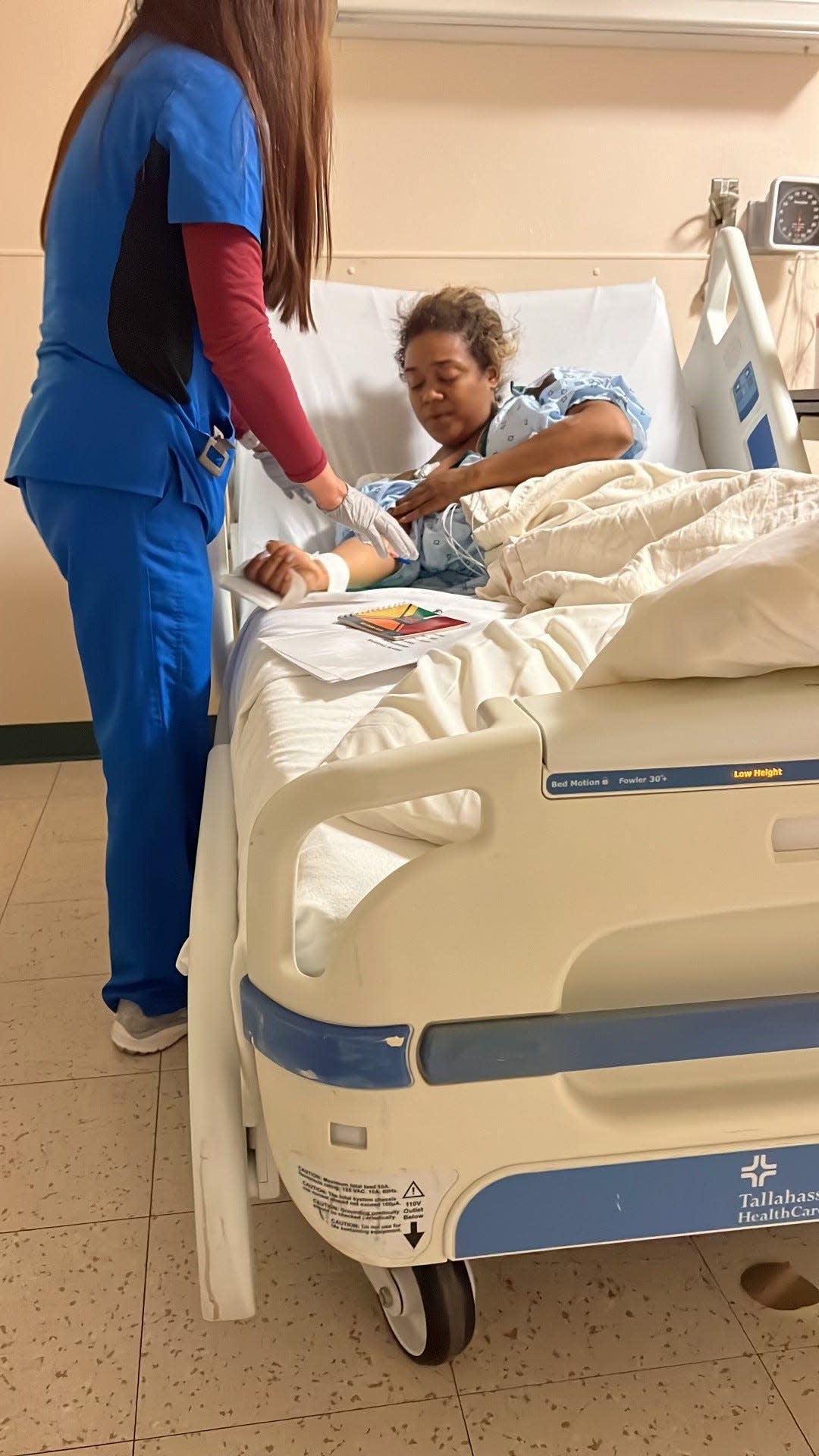'It was life or death': Heart attack raises flags about heart condition, stress
Carmen Martinez Johnson knows a good day can quickly turn into a bad day. Getting stuck in traffic for an hour on the way to work, that can do it. So can receiving an unexpected bill or uninvited visitor.
Carmen has had her share of bad days, but nothing ever set her back like the sudden change in trajectory experienced on a recent sunny afternoon: one of her coronary arteries popped open. Just like that – she went from the picture of health to a heart attack.
“It was life or death,” said Carmen. “I thought I was going to die.”
Carmen had managed to make a 9-1-1 call from her home before collapsing on the floor, shaking, sweating, short of breath, with severe chest and back pain. She was extremely weak and had lost sensation in her left arm.

Dr. Ernesto Umana, a cardiologist at Tallahassee Memorial HealthCare, diagnosed Carmen’s condition after several diagnostic tests in the hospital emergency room as a spontaneous coronary artery dissection (a.k.a. “SCAD”), explaining that within the layers of one of her coronary arteries, a tear occurred, causing blood to pool and block the flow of blood to the heart.
An artery wall has three layers. When a tear occurs, blood can become trapped and bulge inward, narrowing the artery. A spontaneous coronary artery dissection is a much more uncommon heart attack than one caused by plaque buildup in and on artery walls (atherosclerosis).
Treatment for SCAD patients also tends to be different from other heart attack patients. Conservative measures such as blood pressure control and prescribed medications rather than stent placement or bypass surgery is more likely to be the approach. Neither stent placement nor bypass surgery is planned for Carmen.
Seemingly in excellent health at 43 years of age, Carmen fits the SCAD profile. Though SCAD can occur at any age and can occur in men, it most often strikes women in their 40s and 50s. And, Carmen is typical of others with this condition in that she lacks risk factors for heart disease, such as high blood pressure, high cholesterol, or diabetes.
She is physically active.
She doesn’t drink or smoke.
She eats healthy and maintains a healthy weight.
Carmen is not pregnant – and hasn’t recently been pregnant. There is some correlation with SCAD and pregnancy, and women who have recently given birth. SCAD is apparently more likely to occur with women in the first few weeks after delivery.
Researchers consider multiple factors as having a role in SCAD – genetics, abnormalities in the arteries, hormonal influences, inflammatory issues, illegal drug use – but many believe the most common triggers are extreme physical or emotional stress.
In Carmen’s case, stress is the prime suspect. A big part of the treatment plan going forward will be stress reduction. She loves her job and finds it rewarding – but it is also very stressful.
She cares for emotionally-disturbed children (Apalachicola Forest Youth Camp).
“I have to think about another job,” said Carmen, joking – sort of. “The job might be killing me.”

Mark Ryan is a Tallahassee RN.
This article originally appeared on Tallahassee Democrat: 'It was life or death': Heart attack strikes with out notice
